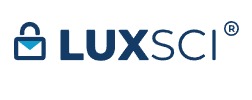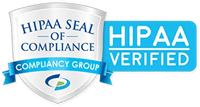In today’s rapidly evolving healthcare landscape, protecting patient information is more crucial than ever. As a healthcare provider, you understand the importance of HIPAA compliance in all aspects of your practice, especially when it comes to electronic communications. With cyber threats on the rise and regulations becoming increasingly stringent, choosing the right HIPAA-compliant email provider is essential for safeguarding your patients’ data and your practice’s reputation.
The Evolving Landscape of HIPAA Compliance in Healthcare Communications
HIPAA compliance is not just a legal requirement; it’s a fundamental aspect of maintaining trust and credibility in the healthcare industry. As technology advances, so do the challenges in protecting sensitive patient information. Email, being a primary mode of communication, is particularly vulnerable to security breaches and data leaks. This is where the best HIPAA-compliant email providers come into play, offering robust solutions to keep your communications secure and your practice compliant.
The Risks of Non-Compliant Email: Protecting Sensitive Patient Data
The consequences of using non-compliant email systems can be severe. HIPAA violations can result in hefty fines, legal repercussions, and irreparable damage to your practice’s reputation. Recent case studies have shown that even minor breaches can lead to significant financial losses and erode patient trust. By employing a HIPAA-compliant email solution, you’re not just avoiding penalties—you’re actively protecting your patients and your practice.
Before we dive into the best HIPAA-compliant email providers, it’s essential to understand the risks associated with using non-compliant email services. The Health Insurance Portability and Accountability Act (HIPAA) sets strict standards for protecting patient data, and violations can result in severe consequences.
Some of the potential risks of using non-compliant email include:
- Data breaches: Unsecured emails can be intercepted, potentially exposing sensitive patient information to unauthorized parties.
- Legal liability: If a data breach occurs due to non-compliant email usage, your practice could face lawsuits from affected patients.
- Regulatory fines: HIPAA violations can result in substantial fines, ranging from $100 to $50,000 per violation, with a maximum penalty of $1.5 million per year for repeated violations.
- Reputational damage: A data breach or HIPAA violation can severely damage your practice’s reputation, leading to loss of patient trust and potential business.
- Criminal charges: In extreme cases, knowingly violating HIPAA regulations can result in criminal charges and even imprisonment.
Given these risks, investing in a HIPAA-compliant email provider is not just a regulatory requirement—it’s a crucial step in protecting your patients and your practice.
The Key Features to Look for in a HIPAA-Compliant Email Provider

When evaluating the best HIPAA-compliant email providers, there are several key features you should consider to ensure maximum security and compliance:
- Encryption: Look for providers that offer robust encryption for emails both in transit and at rest.
- Access controls: The provider should offer strong user authentication and role-based access controls to prevent unauthorized access to sensitive information.
- Audit trails: Comprehensive logging and reporting features are essential for tracking email activities and demonstrating compliance during audits.
- Data loss prevention (DLP): Advanced DLP features help prevent accidental or intentional leakage of sensitive information.
- Secure file sharing: The ability to securely share large files and attachments is crucial for healthcare providers who need to exchange medical records or imaging files.
- Mobile device support: With the increasing use of smartphones and tablets in healthcare, ensure the provider offers secure mobile access.
- Business Associate Agreement (BAA): The email provider must be willing to sign a BAA, which is a requirement under HIPAA for any third-party service handling PHI.
- Archiving and retention: Look for providers that offer HIPAA-compliant email archiving and retention policies to meet regulatory requirements.
- Integration capabilities: The email service should integrate seamlessly with your existing systems and workflows.
- User-friendly interface: A clean, intuitive interface will help ensure adoption and proper use by your staff.
Now, let’s explore the top 10 HIPAA-compliant email providers that offer these essential features and more.

1. MailHippo
In the healthcare industry, safeguarding patient data is paramount. HIPAA regulations mandate strict security measures for electronic protected health information (ePHI), including email communications. But finding a HIPAA-compliant email provider that’s both secure and user-friendly can be a challenge. That’s where MailHippo comes in.
MailHippo offers a simple, affordable, and robust platform for sending and receiving sensitive information via email, all while ensuring complete HIPAA compliance. We believe that security shouldn’t come at the cost of convenience. With MailHippo, you can:
- Effortlessly encrypt your emails: Our intuitive interface makes sending encrypted messages as easy as sending a regular email. No need for complex setups or software installations.
- Maintain your current email address: Keep the email address you know and love. MailHippo works seamlessly with any email provider, so you can transition to secure communication without disrupting your workflow.
- Access your secure emails anywhere: Send and receive encrypted messages on the go with our convenient web and mobile apps securely from any device.
- Enjoy peace of mind with robust security: Rest assured that your patient data is protected with our advanced encryption technology and commitment to HIPAA compliance. It’s no wonder that MailHippo has earned Compliancy Group’s HIPAA Seal of Compliance.
- Receive encrypted emails directly with your own SendSafe® address: Enhance your professional image and streamline secure communication with a dedicated SendSafe® address URL, allowing anyone to easily send you encrypted emails.
- Get started without breaking the bank: MailHippo offers competitive pricing and flexible plans to fit the needs and budget of any healthcare practice.
- Start sending secure emails in minutes: Set up your MailHippo account in a flash and begin protecting patient information immediately. There’s no complicated setup or software to install.
Ready to experience the MailHippo difference?
Sign up now for a free trial and discover how easy it is to send secure, HIPAA-compliant emails. Protect your patients, simplify your workflow, and choose MailHippo for your secure communication needs. With all this, it’s easy to see why MailHippo is one of the best HIPAA-compliant email providers available today.

2. FormHippo
If your practice frequently needs patients and other healthcare providers to sign documents, FormHippo is one of the best investments you can make. The FormHippo platform makes it simple to generate and securely send HIPAA-compliant forms via email to anyone.
What makes FormHippo one of the best options for sending HIPAA-compliant forms through email is the user experience for both the sender and recipient. Patients who receive a form from your practice don’t need to download the form or install new software on their device. And, with only a few clicks, they can sign the form and send it back to your team. All the while, FormHippo’s advanced security software verifies the identity of the signer through name, email, and IP address.
For best-in-class, HIPAA-compliant medical form generation and secure email technology designed with the needs of healthcare providers in mind, you can’t do any better than FormHippo.

3. Paubox
Paubox is a long-time player in the secure email platform market. Paubox is HITRUST (r2 certified) and a G2 Leader. But this comes with a hefty price.
Like MailHippo, Paubox allows you to use your current email address. In fact, you can send HIPAA-compliant emails without needing to leave Google Workspace or Microsoft Outlook. Patients also aren’t forced to create an account upon receiving an email sent through Paubox…
But what sets Paubox apart from other HIPAA-compliant email providers considered among the most preferred on the market today is its robust functionality. Users can send HIPAA-compliant marketing emails and engage patients through SMS text. They can even set up APIs to send emails whenever an action occurs on an integrated application, such as a website visitor downloading a whitepaper.
It’s worth noting that setting up Paubox can take some time, with some users reporting that it can take several days to fully implement it. Many have also shared that they needed to contact Paubox’s customer support for assistance early on. This is worth keeping in mind if a secure email system is an immediate need for your organization.
If your practice is in need of a multi-channel communications platform and you have the budget, Paubox is one of the better options available for sending HIPAA-compliant emails and texts and for integrating marketing automation into your outreach efforts.

4. ProtonMail
Since its founding in Switzerland in 2014, ProtonMail has established itself as one of the favorite HIPAA-compliant email providers available. The company touts its commitment to protecting user privacy. They do not sell user data, and their primary shareholder is a non-profit organization.
ProtonMail is vocal about just how differently it operates from other HIPAA-compliant email platforms rated among the best. Rather than scanning the contents of emails, building a profile for advertisers about the user, and then selling their data, ProtonMail’s end-to-end and zero-access encryption ensures only you can read the content of your emails. The platform also prevents companies from sending emails containing code that tracks your activity across the internet.
There is one major drawback with ProtonMail: You can’t keep your old email address. For many organizations, this is a non-starter since it can force them to create new processes for sharing patient information while compromising their company brand.
ProtonMail is a top HIPAA-compliant email provider option for large medical practices that align with the company’s mission of protecting the privacy of everyone—employees and patients included.

5. Virtru
Much like MailHippo, Virtru is one of the preferred HIPAA-compliant email platforms for small and medium-sized medical practices. It’s competitively priced and has all of the must-have features, including the ability to send encrypted emails using your current email address.
One part of Virtru that sets it apart from the other entrants on our list of the best HIPAA-compliant email providers is the ability for users to revoke access to encrypted emails at a moment’s notice. If your team receives an alert that an unauthorized individual has obtained access to the intended recipient’s email address, you can prevent them from being able to decrypt it on their device. These incidents are typically sudden occurrences, so the value of this feature cannot be overstated.
Virtru users appreciate the platform’s flexibility and how seamlessly it can integrate with popular software such as Salesforce, Zendesk, and Google Workspace. It’s widely considered one of the best HIPAA-compliant email providers on G2, with a 4.4 out of 5 rating based on nearly 300 reviews.
Virtru does, however, only work with Gmail accounts and uses an extension that only exists on Google Chrome. Companies that use any other email servers will have to look elsewhere for secure email services.
If you’re looking for a budget-friendly yet powerful and secure email platform, you need to check out Virtru.

6. Hushmail
Hushmail can be considered the grandfather of encrypted email platforms. Founded in 1999 and residing in Canada, the company focuses on providing its customers with a seamless user experience, whether they’re using its encrypted email, web form, or e-signature products.
There are a number of factors that make Hushmail one of the better HIPAA-compliant email providers out there today, but perhaps the most notable one for small businesses is its affordability. Subscriptions start at only $11.99, making it one of the lowest-priced platforms featured on this list.
On top of offering affordable encrypted email services, Hushmail is also known for its exceptional customer service. Upon signing up for the service, clients are paired with a customer success agent, who can assist them when they experience technical difficulties and ensure they are getting the maximum return on their investment.
One point worth repeating is that Hushmail is a Canadian company. The country’s privacy laws differ from those of the United States, which can cause complications when your organization faces a HIPAA audit. Be sure to consult with legal counsel before deciding on a HIPAA provider since audits can be costly.
That said, if your company values comprehensive support for your HIPAA-compliant email provider, Hushmail is one of the best options available.

7. NeoCertified
Much like Hushmail, NeoCertified is a long-time player in the HIPAA-compliant email software market. Today, they serve nearly half a million users across 50 U.S. states and have received recognition from several industry publications, including winning the G2 High Performer Award for Spring 2024.
NeoCertified offers the type of functionality that has become standard among HIPAA-compliant email providers, including integration with Outlook and Google Workspace and best-in-class, end-to-end encryption. The company’s claim to fame, however, is its commitment to providing small and medium-sized medical practices with the level of security that only enterprise businesses could access in the past. This includes the use of “military-grade” data centers and a secure portal for storing secure emails and attachments.
On top of promising some of the best security functionality among HIPAA-compliant email providers, NeoCertified also has a reputation for quick and seamless implementations. If you were to ask them how they’re able to consistently deliver this type of service, they would likely cite their remote technical support team. Their technicians can guide a medical practice’s IT team through the implementation process and ensure that employees are able to begin sending HIPAA-compliant emails in as little time as possible.
Users have, however, noted that recipients have at times struggled to open encrypted emails sent from the medical practices. This can cause delays and frustration among patients and insurers, so it’s worth factoring into your buying decision.

8. Aspida
Aspida doesn’t just see itself as one of the best HIPAA-compliant email providers for medical practices. Since the company’s founding in 2013, they have sought to be a leader in creating comprehensive HIPAA compliance solutions for medical practices.
So, what does that mean? Unlike many of the other firms mentioned on this list, Aspida also sells hardware, including the Aspida Wall, a device that provides an additional layer of network protection against hackers and viruses, and Aspida Recovery, which provides recovery services in the event of a disaster.
While Aspida isn’t only a HIPAA-compliant email platform, email security is still a top priority for them. Their platform is compatible with all major email clients, such as Outlook, Apple Mail, and Thunderbird, and includes up to 30GB of storage for every user’s mailbox. The software also routinely conducts scans to detect spam and malware.
But there is one major challenge many Aspida users encounter: It’s not particularly user-friendly. The user interface can appear overly technical for those without a background in IT or software engineering and require a manual to navigate.
But, for organizations with technical experts on staff who are in search of HIPAA-compliant email services paired with comprehensive network security, Aspida is a solid option.

9. LuxSci
LuxSci positions itself as the best HIPAA-compliant email provider for healthcare organizations that want to create personalized journeys for each of their patients. And they have the robust functionality needed to support this positioning.
LuxSci’s platform includes all of the core features you would expect from a HIPAA-compliant email provider, including encrypted messaging and secure forms that allow patients to confidently submit their PHI without fear of it falling into the wrong hands.
Their biggest differentiator, however, is the platform’s email marketing capabilities. Platform users can segment patients based on factors such as healthcare needs and demographic data to increase open and click-through rates. They can also set up marketing automation through the platform. For example, they can create a rule that ensures the patient automatically receives a personalized email the moment they submit a form.
While LuxSci does offer best-in-class marketing functionality among HIPAA-compliant email providers, some have noted its user interface can feel a bit clunky and outdated at times. It’s always a good idea to schedule a demo or sign up for a free trial of an email platform before making a decision. You’ll get a feel for the user experience and can decide whether it’s a sticking point for your business.
LuxSci is a good option for healthcare organizations focused on delivering an exceptional patient experience, beginning the moment the patient encounters the organization for the first time onward.

10. HIPAA Vault
HIPAA Vault provides end-to-end HIPAA-compliant solutions for healthcare organizations. This includes a standard HIPAA-compliant email platform, HIPAA-compliant WordPress hosting for healthcare practices that hope to build and maintain their own websites, and HIPAA-compliant Google Cloud Managed services for securely storing data.
As for their email services, HIPAA Vault enables users to send fully encrypted emails through a Gmail or Outlook account. Their plans include a significant amount of storage – 5TB in total – and allow users to perform functions such as revoking access to emails, disabling forwarding, and setting dates and times in which view access to the email expires.
Although the comprehensiveness of HIPAA Vault can’t be denied, it’s worth considering what’s most important for your organization. If you’re primarily focused on sending encrypted, HIPAA-compliant emails, a larger solution like HIPAA Vault could be more difficult to manage. Additionally, users of HIPAA-compliant email providers often want to be sure the customer support agent with whom they are speaking has full mastery of the software. It’s much more challenging to offer that level of support for large, complex solutions.
That said, if your healthcare organization wants to feel certain that all of its communications are HIPAA-compliant, HIPAA Vault is a strong option.
Conclusion: Protecting Your Patients’ Data and Your Practice with the Right HIPAA-Compliant Email Solution
When choosing from these providers, consider your specific needs, budget, and the size of your practice. Some providers may offer discounts for annual subscriptions or volume licensing, so be sure to inquire about these options when making your decision.
Selecting the right HIPAA-compliant email provider is a crucial decision for any healthcare practice. It’s not just about meeting regulatory requirements—it’s about protecting your patients’ sensitive information, maintaining their trust, and safeguarding your practice from potential legal and financial consequences.
As we’ve explored in this comprehensive guide, there are numerous excellent options available, each with its own strengths and specialties. Whether you prioritize cutting-edge security features, ease of use, robust compliance reporting, or exceptional customer support, there’s a HIPAA-compliant email provider that can meet your needs.
Remember, the cost of implementing a HIPAA-compliant email solution is far outweighed by the potential risks and consequences of non-compliance. By choosing one of these top providers, you’re making a wise investment in the security and future of your practice.
We encourage you to carefully evaluate the options presented here, considering your specific requirements, budget, and the unique needs of your healthcare practice. Don’t hesitate to reach out to these providers for demos or trials to get a hands-on feel for their services.
Ultimately, the best HIPAA-compliant email provider will give you peace of mind, knowing that your patient communications are secure, your practice is protected, and you’re fully equipped to provide the best possible care while maintaining the highest standards of data privacy and security.
We’d love to hear about your experiences with HIPAA-compliant email providers. Have you used any of the services mentioned in this article? Do you have any tips or insights to share with fellow healthcare providers? Please leave a comment below and join the conversation on this crucial aspect of modern healthcare practice.
Our Top Pick for 2025: MailHippo

MailHippo provides a comprehensive solution for HIPAA-compliant email, offering a balance of strong security, ease of use, and affordability. With features like effortless encryption, compatibility with existing email addresses, mobile accessibility, and dedicated SendSafe® addresses, MailHippo empowers healthcare professionals to protect patient data without sacrificing convenience or budget. It’s easy to see why MailHippo is the best choice among HIPAA-compliant email providers.
Ready to experience the MailHippo difference?
Sign up today for a free trial and discover how easy it is to send secure, HIPAA-compliant emails. Protect your patients, simplify your workflow, and choose MailHippo for your secure communication needs.
Get our HIPAA-compliant email platform with secure, encrypted email messaging FREE for a limited time with our 30-day Trial!
BEGIN MY FREE TRIAL
Disclaimer:
This blog post mentions various companies and may include their logos and trademarks for informational and comparative purposes only. The use of these logos and trademarks is protected under the doctrine of fair use, which allows limited use of copyrighted material without requiring permission from the rights holders for purposes such as criticism, commentary, news reporting, teaching, scholarship, or research.
The inclusion of any company, logo, or trademark in this blog post does not imply endorsement by or affiliation with those companies. All logos and trademarks remain the property of their respective owners.






